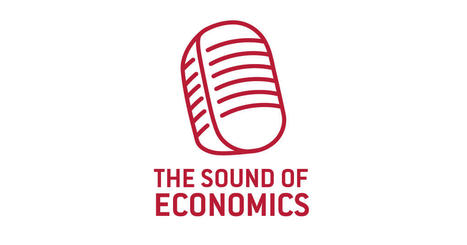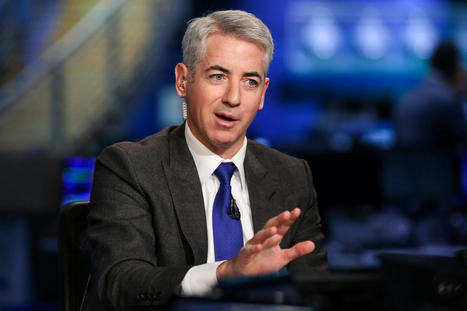 Your new post is loading...
We provide large-sample evidence on whether U.S. publicly traded corporations use voluntary disclosures about their commitments to employee diversity opportunistically. We document significant discrepancies between companies’ external stances on diversity, equity, and inclusion (DEI) and their hiring practices. Firms that discuss DEI excessively relative to their actual employee gender and racial diversity (“diversity washers”) obtain superior scores from environmental, social, and governance (ESG) rating organizations and attract more investment from institutional investors with an ESG focus. These outcomes occur even though diversity-washing firms are more likely to incur discrimination violations and have negative human-capital-related news events. Our study provides evidence consistent with growing allegations of misleading statements from firms about their DEI initiatives and highlights the potential consequences of selective ESG disclosures.

|
Scooped by
Institut sur la gouvernance (IGOPP)
February 16, 2024 10:44 AM
|
A tense standoff between Samsung C&T management and shareholders is looming over the company’s next shareholders meeting. According to the Korean media, activist investors are demanding significantly higher dividends than what the firm proposed. They are also pressuring Samsung C&T to initiate share buybacks. The shareholders meeting is scheduled for March 15. Activist investors demand massive dividends from Samsung
Samsung C&T, the construction and energy arm of Samsung Group, is the de facto holding company of all of its major affiliates, including Samsung Electronics. In a regulatory filing earlier today, the company reported a proposal from five foreign activist funds, including City of London Investment. The investors have demanded a return of its profit to shareholders through dividends and a share buyback program.

|
Scooped by
Institut sur la gouvernance (IGOPP)
November 27, 2023 10:42 AM
|
This report documents corporate governance trends and developments at US publicly traded companies—including information on board composition and diversity, the profile and skill sets of directors, and policies on their election, removal, and retirement. The analysis is based on recently filed proxy statements and complemented by the review of organizational documents (including articles of incorporation, bylaws, corporate governance principles, board committee charters, and other corporate policies made available in the Investor Relations section of companies’ websites). The report also presents key insights gained during two Chatham House Rule meetings: a focus group discussion with in-house governance leaders in which we discussed their views on current trends in corporate boardrooms, and a roundtable discussion with over 30 corporate directors, C-Suite executives, and governance professionals, in which we discussed how to harness the advantages of having a diverse board.

|
Scooped by
Institut sur la gouvernance (IGOPP)
August 29, 2022 11:26 AM
|
On August 23, 2022, Institutional Shareholder Services (ISS), the leading global proxy advisory firm, issued a special situations research note on the new, mandatory “universal proxy card” rules instituted by the U.S. Securities and Exchange Commission. In its note, ISS declared the new rules the “superior” way for shareholders to exercise their voting franchise and observed that this system will make it “dramatically easier” and “cheap” for activist shareholders to launch proxy fights. ISS also offered perspectives on how the new system could help activists in their campaigns. Public companies should pay close regard to these perspectives in light of the weighty influence of ISS’s proxy voting recommendations on the outcomes of contested director elections. The most notable of ISS’s perspectives are that under the new framework, directors’ individual qualifications may come into greater focus relative to the merits of an overall slate and that a board’s “weakest” members may now become more vulnerable in a proxy contest.

|
Scooped by
Institut sur la gouvernance (IGOPP)
August 5, 2022 11:06 AM
|
Nothing in either corporate or securities law requires companies to notify investors what they will be voting on before the record date for the meeting. In a forthcoming paper, we show that, overwhelmingly, they do not. The result is “hidden agendas”: for 88% of shareholder votes, investors cannot find out what they will be voting on before the record date. This poses an especially serious problem for investors who engage in securities lending: they must decide whether the expected benefit of voting exceeds the expected benefit of continuing to lend their shares (or making them available for lending) without knowing what they will be voting on. All investors who engage in share lending are affected, but the problem is particularly acute for large investment managers that have fiduciary duties related to voting. At present, they must discharge these duties in the dark.
Historically many of the policies designed to increase fairness at work have revolved around the hiring process: for example, removing candidates’ names from resumes so hiring managers aren’t influenced by their presumed gender or ethnicity, or setting strict pay bands to ensure employees at the same level are paid the same rate. But in reality, most employees’ perception of fairness relates more to their day-to-day experiences — and these perceptions have a significant business impact. Perceptions of fairness improves employee performance by up to 26% and retention by up to 27%. To create a higher-fairness experience for all employees, organizations need to ask themselves four key questions: 1) Do your employees have the information they need to succeed at their jobs and advance their careers? 2) Do they feel supported? 3) Does everyone get a fair chance at internal opportunities? 4) Do leaders and managers recognize employee contributions?
If the barbarians are at the gates, Japan is letting them in. The country is becoming increasingly comfortable with foreign private equity funds and activist investors, a development that gives staid boardrooms the chance to enact the unparalleled wisdom of Western management. In reality though, the expertise could just as easily flow the other way. At the start of the latest annual shareholding meeting season, a record 77 companies faced proposals from stock owners, many of them foreign investors. [...] Some see that potential deal as the litmus test for the future of private equity in Japan.

|
Scooped by
Institut sur la gouvernance (IGOPP)
November 24, 2021 2:17 PM
|
A new report from Diligent Institute sheds light on where the investment landscape is headed and how business leaders can get ahead.

|
Scooped by
Institut sur la gouvernance (IGOPP)
August 26, 2021 11:23 AM
|
Nike shareholders will vote on a proposal requesting disclosure around the company’s work to promote diversity and inclusion – and proposals on other social-related themes – as such measures have gained momentum this year.

|
Scooped by
Institut sur la gouvernance (IGOPP)
August 26, 2021 11:20 AM
|
The size and scope of investments needed to reach net zero will have significant macroeconomic implications.

|
Scooped by
Institut sur la gouvernance (IGOPP)
August 26, 2021 10:42 AM
|
The SEC’s adoption of additional climate-related financial reporting disclosure requirements looks like a matter of “when,” not “if.” And while we’re all waiting for SEC Chair Gary Gensler and his team to come down from the mountain with the stone tablets in a few months, let’s face an undeniable fact: The CFO’s role in environmental, social and governance (ESG) reporting is no longer a question of “if,” either.

|
Scooped by
Institut sur la gouvernance (IGOPP)
August 18, 2021 9:02 AM
|
The year to date has seen record-breaking support for shareholder resolutions, with asset managers such as BlackRock and Vanguard stepping up their stewardship. However, a lack of data on the real-world impact means the jury is still out on their efficacy.

|
Scooped by
Institut sur la gouvernance (IGOPP)
August 17, 2021 9:35 AM
|
Making an acquisition is a major step for a company. For all the possible benefits, however, there are many challenges that can derail a deal and destroy the anticipated shareholder value. Navigating those pitfalls is vital to an acquisition delivering on its potential. Here are the steps boards should take at each stage of an acquisition.
|
Elliott, the $65 billion hedge fund best known for its shareholder activism, has made a $2.5 billion investment in Texas Instruments
and is urging the company to improve its free cash flow by adopting a less rigid plan for capital expenditures. Faber Report: Activist Elliott takes $2.5 billion stake in Texas Instruments
In a 13-page letter viewed by CNBC, Elliott proposes that Texas Instruments introduce what it calls a “dynamic capacity-management strategy” that would allow the company to achieve free cash flow of as much as $9 a share by 2026, which is roughly 40% above current consensus of the analysts who follow the world’s largest maker of analog semiconductors. Texas Instruments in an emailed statement said it has received the letter and is reviewing it. “As always, our focus is on continuing to make decisions that are in the best interest of TI and all of our shareholders,” the company said.

|
Scooped by
Institut sur la gouvernance (IGOPP)
February 2, 2024 10:30 AM
|
A group of investors has called on Samsung’s de facto holding company to increase dividends and institute share buybacks, as pressure mounts on South Korean companies to address their low valuations. US hedge fund Whitebox Advisors, UK fund City of London Investment Management and Seoul-based fund Anda Asset Management submitted their proposals on Friday ahead of Samsung C&T’s annual meeting in March. The funds hold a stake of just over 1 per cent in the company. The company, whose operations span construction and retail and through which the conglomerate’s ruling Lee family controls tech giant Samsung Electronics, trades at more than 65 per cent below its net asset value, making it a target for investors campaigning to narrow the long-standing “Korea discount”. “Rather than address local and foreign shareholder concerns about this long-term underperformance, Samsung C&T’s board has repeatedly dismissed or ignored our suggestions for enhancing shareholder value,” the funds wrote to shareholders on Friday.

|
Scooped by
Institut sur la gouvernance (IGOPP)
August 31, 2022 11:18 AM
|
Directors and officers (D&O) liability during the past 20 years has largely been driven by governance. Following the Enron accounting scandal in 2001 and the global financial crisis in 2008, directors and officers faced a rising tide of regulation and litigation. The next wave to watch for, however, will more likely be led by the ‘E’ and the ‘S’ in ESG (environmental, social and governance), as directors and officers are increasingly held to account for their organisations’ environmental and societal impact. [...] There are a number of questions risk managers should ask themselves in the context of ESG and D&O liability: - Has your company set sustainability targets and what is being done to oversee progress towards achieving these goals?
- What is the board’s oversight of ESG risks and what accountabilities have been set for ESG-related performance?
- Does ESG reporting satisfy the needs of stakeholders and what has been done to ensure that ESG-related disclosures are reliable?
- What are your company’s ESG risks and how are they being managed?
- Are you assessing the ESG credentials of your suppliers?

|
Scooped by
Institut sur la gouvernance (IGOPP)
August 5, 2022 11:17 AM
|
William Ackman isn’t known for his political takes. Typically, the billionaire hedge fund manager spends his time dissecting corporate financials, looking for his next high-profile investment or activist play. But this week, the CEO of Pershing Square Capital Management found himself in the middle of a heated debate over the carried interest “loophole”—which allows private equity and hedge fund managers to reduce their tax burden on profits from fund investments. It’s a key part of the tax code that has helped make so many hedge fund managers like Ackman billionaires in the first place. Democrats have been working to close the carried interest loophole as part of the proposed $739 billion Inflation Reduction Act of 2022, and many hedge fund managers have come out in opposition—but not Ackman. “The carried interest loophole is a stain on the tax code,” Ackman said in a Thursday tweet.

|
Scooped by
Institut sur la gouvernance (IGOPP)
August 5, 2022 11:03 AM
|
Tesla beat back most proposals by activist investors that sought to pressure the company and its chief executive, Elon Musk, to change the way they treat workers and disclose more about how they lobby government officials. Only one shareholder proposal prevailed, according to preliminary results announced by the company. It will allow large shareholders to nominate alternate members of the board of directors, a common practice among large corporations. Tesla has often faced criticism that its board lacks diversity and people willing to stand up to Mr. Musk. Proposals required a two-thirds majority to be adopted.
In the space of one itchy week of investor-on-company friction, Japan has uncovered three new mutant strains of shareholder vote. There’s the one you win then decide to lose, the one you lose then pretend you weren’t even playing, and the one you just about win, but lose on behalf of an entire ideology. For global investors to get interested in Japan again, the last of these strains needs to turn infectious. Heading into Japan’s 2022 season of annual general meetings, the prospects for pyrotechnics seemed high. In a steady erosion of corporate complacency, a record (by some margin) number of companies (77) faced a record number of shareholder proposals (292) this year. Many of these meetings make for a fascinating spectacle, but three carried a wider resonance, with the accident-prone behemoth Toshiba, unsurprisingly, at their forefront.
There is, however, a potential downside to the SEC’s proposal for increased disclosure of swap positions that might not be immediately apparent: If passed, the rules could severely restrain shareholder activism—a key market mechanism for holding corporate managements accountable, improving governance and creating sustainable value.

|
Scooped by
Institut sur la gouvernance (IGOPP)
September 2, 2021 9:54 AM
|
In the fifteen years since the passage of the Sarbanes-Oxley (SOX) Act in the U.S., several institutional and regulatory changes have helped reshape boards of directors. During this time, other factors have emerged to place greater pressure on boards as well. In particular, larger activist investors have applied pressure on boards to focus their efforts on managerial oversight. Increasingly third-party rating services and proxy advisors such as Institutional Shareholder Services (ISS) have suggested boards need to be more independent and focused on shareholder interests.

|
Scooped by
Institut sur la gouvernance (IGOPP)
August 26, 2021 11:21 AM
|
Is sustainable investing contributing to society’s climate and social goals, or preventing systemic change?

|
Scooped by
Institut sur la gouvernance (IGOPP)
August 26, 2021 11:20 AM
|
Collectively, investment companies such as BlackRock, Fidelity, State Street, and Vanguard hold more than $29 trillion on behalf of more than 47 percent of all households in the United States and account for approximately 30 percent of all U.S. corporate equity.

|
Scooped by
Institut sur la gouvernance (IGOPP)
August 18, 2021 9:03 AM
|
Bill Ackman’s troubled SPAC was hit with a lawsuit Tuesday alleging the blank-check company promised “staggering compensation” to directors and asking that the entity’s special status be revoked.

|
Scooped by
Institut sur la gouvernance (IGOPP)
August 17, 2021 9:35 AM
|
ESG investing — funds that are conscious of companies' actions on the environment, society and governance — is an increasingly popular trend for people concerned about how their money is being used. It sounds great, but it's complicated.
|






 Your new post is loading...
Your new post is loading...
























